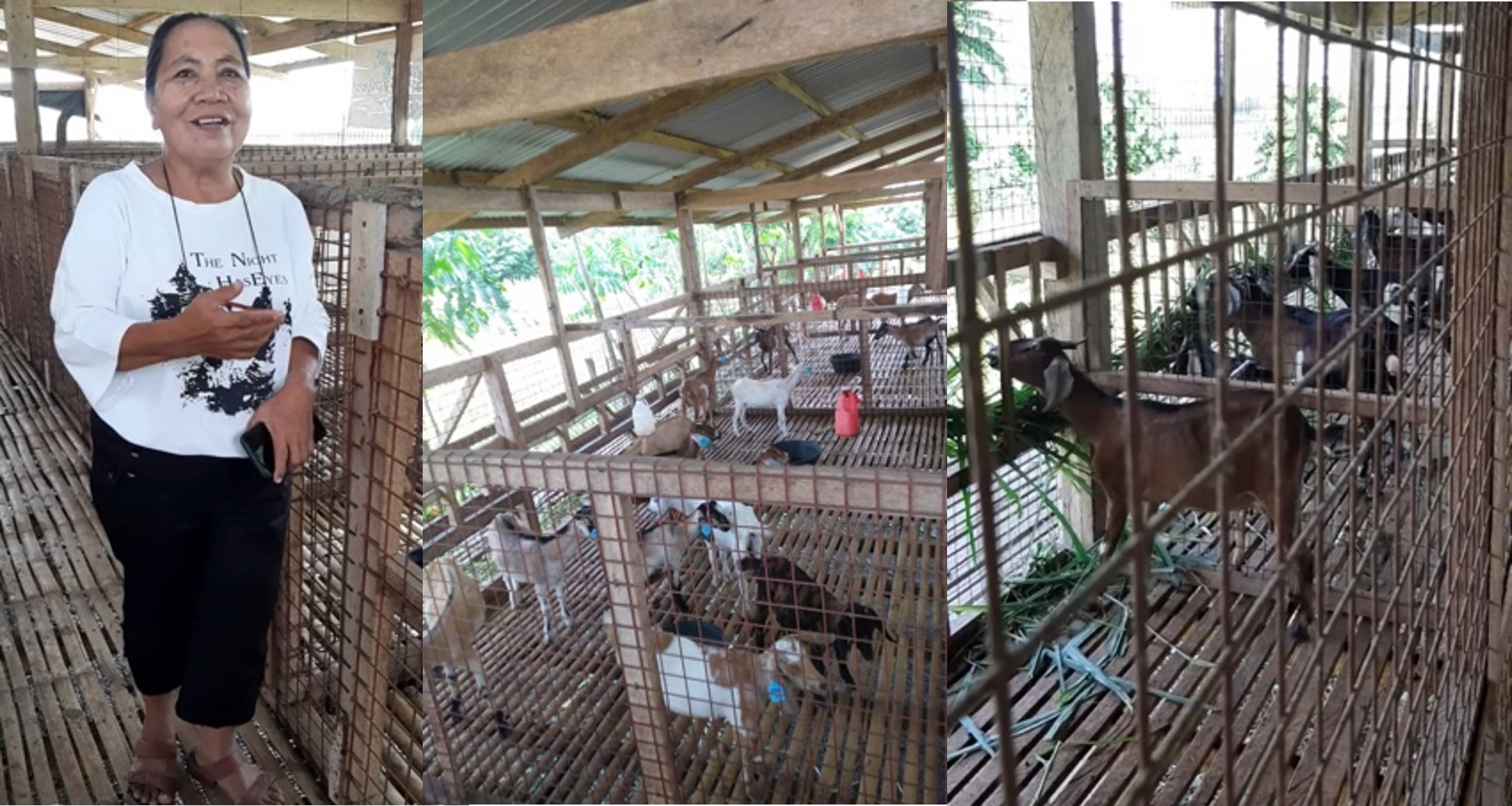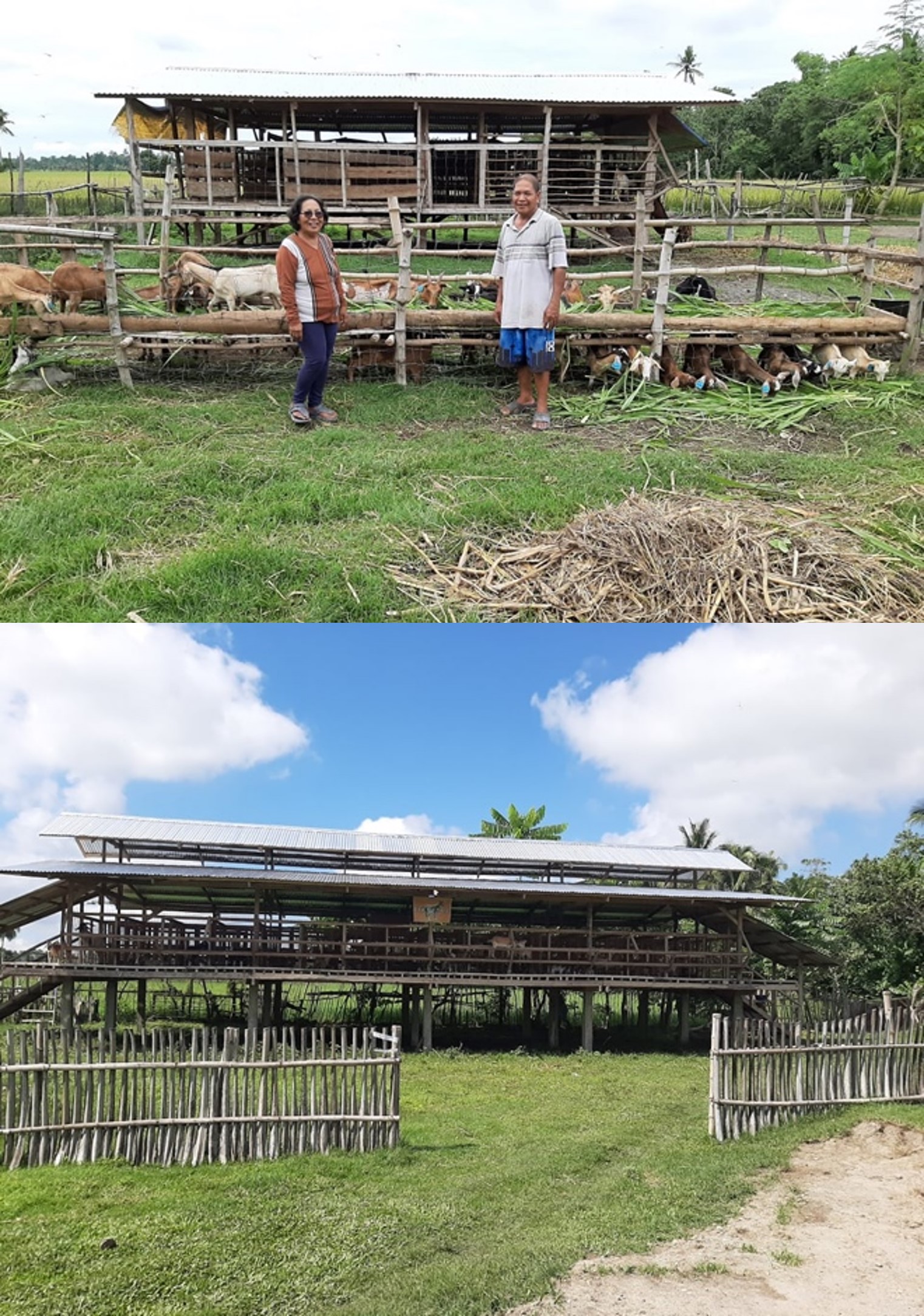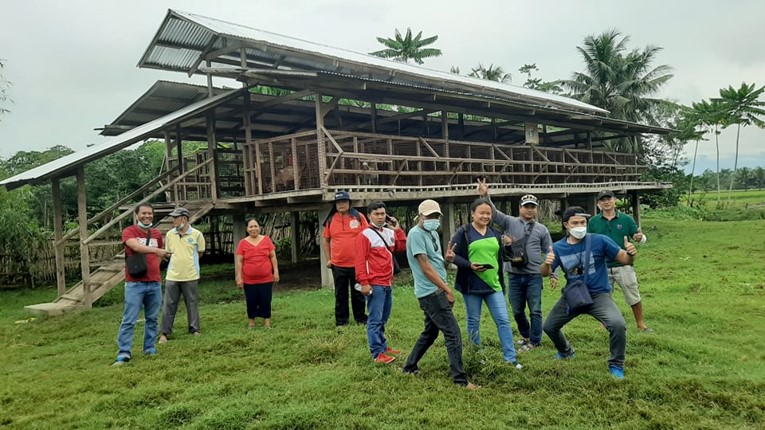
In 2018, Mrs. Salome P. Amar of President Quirino, Sultan Kudarat enrolled in the Farmer Livestock School on Halal Goat Enterprise Management (FLS-HGEM), a six-month program for farmers developed by the Philippine Council for Agriculture, Aquatic and Natural Resources Research and Development of the Department of Science and Technology (DOST-PCAARRD) and implemented by the Sultan Kudarat State University (SKSU).
Mrs. Amar was trained on the rudiments of halal goat raising for 32 weeks and was taught on the requirements in establishing a halal goat farm --- from farm location and biosecurity to designing a halal-acceptable pen, establishment of halal pastures, halal feeding, as well as adherence to acceptable breeding and health practices. She was also exposed to several halal-compliant allied enterprises from the core enterprise of goat production. Although she had goats in the past, she was never aware that there were practices that could turn goat production into haram or non-halal.

When she enrolled in FLS-HGEM, she had seven goats. From free grazing, which means letting her stocks roam freely anywhere all day long, she shifted to strategic grazing, a technology she learned from the FLS-HGEM. In this system, she grazes her stocks only in summer or when the weather is favorable. She likewise designates areas on her farms as grazing paddocks and provides supplemental feed when the goats return from grazing and stall feeds them with cut forages during inclement weather. She has also established her own forage garden to ensure the halal integrity of the feeds she gives her goats.
Under the DOST- Niche Centers in the Regions for R&D (NICER) Program on halal goats, she was taught new designs for her halal goat house, and she began to separate the does that are about to kid and the newly kidded from the rest of the herd. She houses them in separate stalls to avoid trampling, which in previous years caused most of the deaths of the kids in her farm.
Eventually, diseases and deaths were curbed and breeding was improved. She witnessed an increase in her stocks, which over three years totaled more than 110 head, she said. During PCAARRD’s monitoring visit to the farm on September 14, 2022, she has 21 goats. Looking back since she started raising halal goats, she estimates having marketed more than 90head of goats that gave her a gross income of about P400,000. Her cash expenses were basically the amount used to renovate the goat house, as feeds consisting of just the forages were free from her farm. Labor cost, on the other hand, was a shared cost for all the business ventures inside the Amar farm.
Most of her buyers are still Christians, who prefer to eat halal goats, as they are known to be clean. Muslim customers, on the other hand, buy male goats to serve as qurban during Islamic festivities. These goats are sold for P4,000-5000 per head depending on the age and body condition. It is still not a practice to weigh each animal and prices are still based on an agreed estimated price.

At present, Mrs. Amar is an acknowledged supplier of authentic halal goats not only within President Quirino but in nearby municipalities as well. She now sits as a member of the Provincial Halal Council and her farm is now a farm tour destination for goat training.
This project that assisted Mrs. Amar in her venture towards halal goat production is part of the NICER-Halal Goat Science and Innovation Program, a program funded by the Department of Science and Technology under the Accelerated R&D Program for Capacity Building of Research and Development Institutions and Industrial Competitiveness: NICER Program. It is being monitored by the DOST-PCAARRD.
